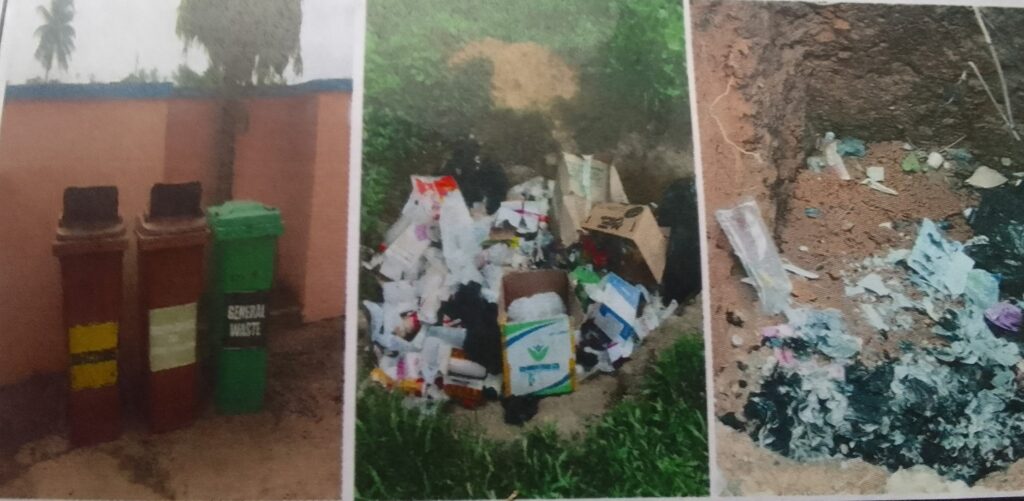Wassa East health care facilities have no proper medical waste management systems
 Research conducted by Water Aid Ghana on “Strengthening Systems for WASH in Health Care Facilities” within the Wassa East District has revealed the absence of proper medical waste management systems in most facilities in the district.
Research conducted by Water Aid Ghana on “Strengthening Systems for WASH in Health Care Facilities” within the Wassa East District has revealed the absence of proper medical waste management systems in most facilities in the district.
The district, which has 28 functional health facilities, has only a few mission and private ones with incinerators for proper medical waste disposal.
Mr Richard Amaning, the lead Consultant for the research who presented at a validation workshop, said the situation was capable of derailing most quality health care indicators and hampering the achievement of the Sustainable Development Goals.
The study, he explained, established that most of the facilities either burnt their medical waste behind their facilities or left them uncovered in dug pits posing health emergencies to lives of communities and children in particular who may pick the objects for play.
According to the study, approximately four in ten facilities have a functional waste collection container available in proximity for non-infectious waste, infectious waste, and sharps waste with some also practicing waste segregation.
The district also recorded many non-functional toilet facilities, a situation the consultant attributed to building types, frequent water shortage, collapsed toilet facilities or broken doors which did not allow for privacy.
Mr Amaning said records keeping on routine cleaning on toilets facilities was also lagging adding that in some facilities one pit latrine served the needs of both staff and patients, staff alone, other areas had collapsed toilets or abandoned due to irregular water supply.
“In the meantime, basic water services should be increased, considering the huge investment but issues of operational maintenance with frequent breakdowns could derail some aspects of the progress made,” he noted.
While more than 67 per cent of the 28 facilities and hygiene services were above the national estimate of 55 per cent, the research recorded that such hand washing facilities were either at the mercy of the weather or sinks falling without any care.
He indicated that environmental cleaning services in Health care facilities were extremely low and many of the facilities had issues with maintaining proper sanitary conditions also majority of the facilities had no personnel or orderlies for cleaning.
The consultant had therefore proposed the establishment of a District WASH standards for all facilities, development of Health Care Key Performance Indicators with the District Health Directorate, train focal personnel and the introduction of a Clean Clinic Model across the District.
Ms Seyram Asimah, Acting Programme Manager Water Aid Ghana said the project was designed to strengthen WASH and health systems, accelerate the coverage of reliable access to safer water and affordable, inclusive, and sustainable WASH services.
That, she noted, would help provide evidence-based information around the sector to inform policy, practice, and advocate prioritization of services in Health care.
Source: GNA
